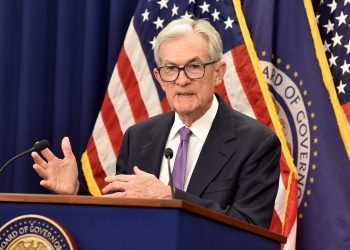“Companies that buy carbon credits decarbonize twice as fast as those which do not.”
Politics has been called the art of the possible. Yet regarding climate change, this adage is flipped on its head — it’s the art of the impossible.
As the world prepares for COP 28, the 28th United Nations Climate Summit, we desperately need to shift our efforts to immediate, bold action that’s possible now. And far from diminishing our ambition, focusing on available actions can get the world back on track to make the impossible possible.
The urgency of addressing climate change is undeniable, and the litany of impacts is becoming rote: stronger hurricanes and typhoons; deadly floods; years-long droughts, heatwaves baking entire continents. Records fall every year: The hottest. The driest. The wettest. The deadliest.
It is hard to have hope when confronted with the reality that even if every country meets its current commitment to reduce carbon emissions, the world will still be 24 billion tons short of what’s needed in 2030 to keep climate change below 1.5 degrees Celsius.
While hope is not a strategy, pragmatism is. When we focus on what’s possible, with science as our guide, endless opportunities come into view. Every action we take today raises our ambitions tomorrow.
A path forward
Among the many possible actions, we need “all of the above” to reduce emissions. Yet, few strategies offer as much opportunity for global, scalable, short-term benefit as carbon markets.
For governments, markets bring flexibility that can reduce the cost of meeting their commitments under the Paris Agreement by $250 billion per year in 2030, growing to a total of $21 trillion of mitigation cost savings between 2020 and 2050. These savings can be reinvested into climate action, raising ambitions to close the 24-billion-ton gap, which is why 83% of countries include the use of carbon markets in their climate commitments.
In the private sector, companies that buy carbon credits decarbonize twice as fast as those which do not. The reason is simple: If you put a price on carbon, which happens when you buy credits, you have an incentive to reduce emissions. Carbon markets give companies the opportunity to take responsibility for their emissions today, and for their past emissions, even as they work to decarbonize. In the climate crisis, the world should no longer accept unabated emissions. Markets offer a path forward.
“Create incentives for more companies to invest in climate action. ”
As a veteran of many UN Climate Summits, I value the global process that resulted in the Paris Agreement. I also understand the frustration inherent in such processes, with each summit following a predictable cycle of unrealistic optimism leading to missed targets and brokered compromises.
Hope springs eternal, but hard-won experience has taught me to focus on the art of the possible. So, what’s possible right now? As negotiators at this year’s Climate Summit explore ways to leverage both domestic climate policies and international cooperation under Article 6 of the Paris Agreement, they should learn from the single global compliance carbon market currently operating that can serve as a foundation.
Known as Corsia, the market — which is operated by the International Civil Aviation Organization — offers a robust and decentralized approach for airlines to use high quality credits towards their emission reduction targets in line with Paris Agreement rules. Governments should build on the Corsia system rather than reinvent the wheel.
It’s also possible to create incentives for more companies to invest in climate action. Today, acting is often riskier than doing nothing at all. Unfair criticism targets leaders rather than laggards, which must change.
Companies should be encouraged to set emission-reduction targets and to compensate for the emissions they cannot avoid. However, every analysis shows decarbonization will take time and be expensive, especially in the energy, transportation, industrial and agricultural sectors. As companies invest in internal abatement, they should also compensate for all residual emissions today by buying carbon credits from activities that reduce tropical deforestation, capture methane emissions, accelerate clean energy and remove carbon from the atmosphere.
“We cannot afford to wait for perfection when good options are available now. ”
On issue after issue, markets are already in place to play a critical role. They can help developed economies fulfill their promises to the Global South to transition away from fossil fuels. They can protect and enhance forests and the carbon they store. They can destroy super-pollutants that drive climate change much faster than carbon dioxide.
Let me acknowledge that markets are not perfect; we need to continually improve oversight, transparency and integrity. Worthwhile initiatives are underway, notably by the Integrity Council for the Voluntary Carbon Market. But we cannot afford to wait for perfection when good options are available now.
The brutal math of climate change makes it easy to focus on the impossible. But as the world prepares for yet another Climate Summit, we’d all benefit by refocusing on what’s possible. Far from diminishing our chances, pragmatic action can lead to something vanishingly rare in climate circles: optimism. Carbon markets are one of the best ways to embrace the “art of the possible” by vastly ramping up climate investments and ambitions immediately.
Mary Grady is executive director of ACR, a nonprofit subsidiary of Winrock International and the world’s first private voluntary greenhouse gas registry. She is also executive director of the Architecture for REDD+ Transactions and a UNFCCC observer at the annual UN Climate Summits.
More: Bad-mouthing carbon markets drives away the companies that need them most
Also read: Buyers worldwide go for bigger cars, erasing gains from cleaner tech. EVs would help.
Read the full article here









